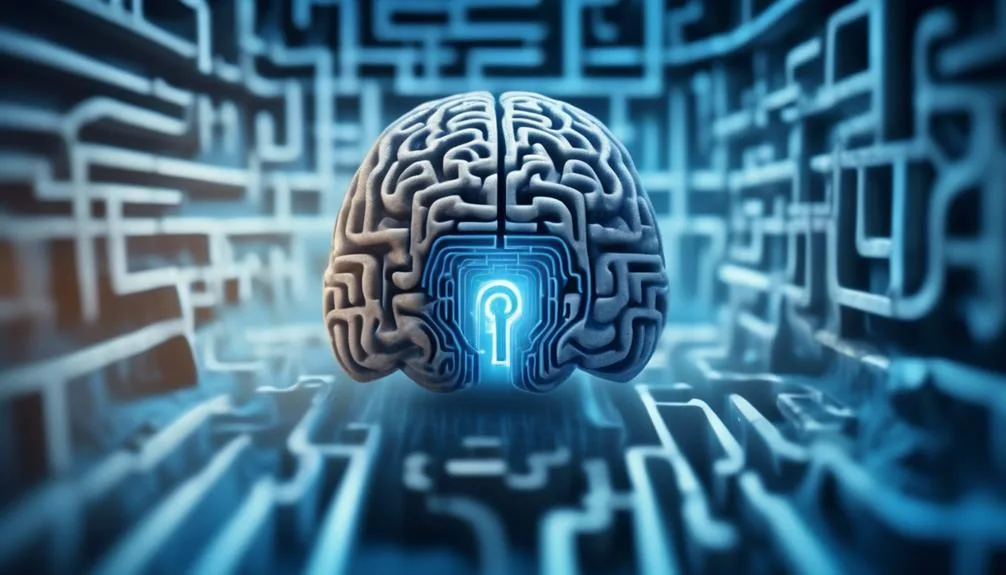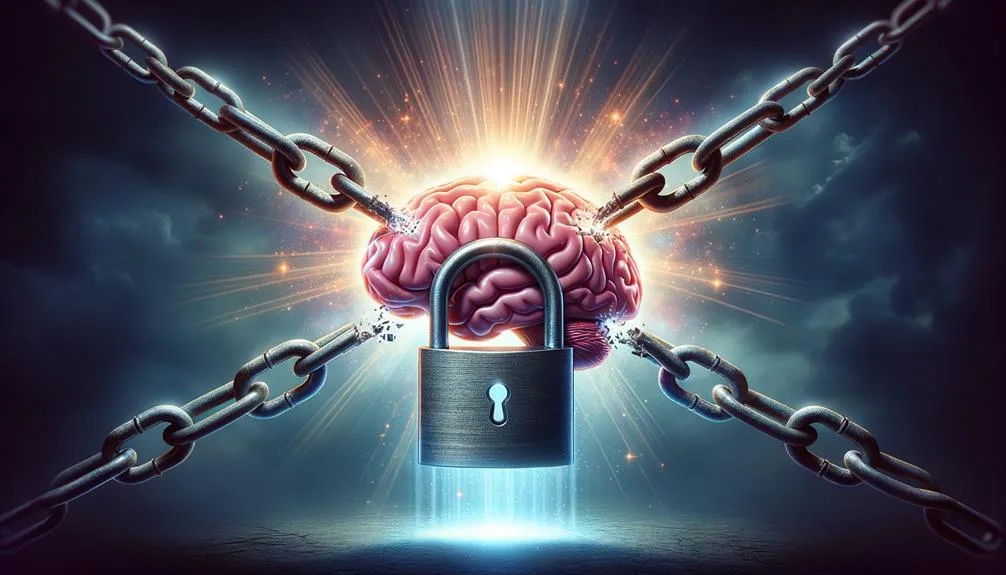As you navigate the labyrinth of the psyche with the astrolabe of introspection, you may find yourself at the threshold of emotional trauma—territory both daunting and rich with potential for growth. This is not the realm of quick fixes, but rather one where patience and courage are your most trusted companions.
You're on the brink of unlocking powerful insights that can transform the way you perceive yourself and interact with the world. Emotional trauma, often a hidden undercurrent in the river of life, shapes much more than fleeting emotions; it influences your relationships, choices, and even your physical well-being.
You've likely felt its grip in moments of inexplicable anxiety, or perhaps recognized its echo in patterns you can't seem to break. Now, imagine uncovering the roots of these experiences, not merely to unearth pain but to foster a profound healing—a metamorphosis that begins within.
Stay the course, for the keys to your emotional fortress are within reach, and the treasures inside await those brave enough to discover them.
Key Takeaways
- Emotional trauma can occur in response to extreme situations and ongoing experiences, such as bullying or being in a destructive environment.
- Emotional trauma affects the body, heart, and mind, and the intense emotions associated with trauma can be overwhelming.
- Trauma can manifest in four components: hyperarousal, constriction, dissociation, and freezing, which are present in all traumatized individuals.
- Healing emotional trauma through inner work is crucial for personal growth, spiritual transformation, and overall wellbeing.
Understanding Emotional Trauma
To truly grasp the impact of emotional trauma, it's important to recognize that it's not just a fleeting emotion but a profound disruption that can deeply affect your psychological well-being and daily functioning.
The effects of emotional trauma on relationships are particularly significant. It can lead to mistrust, communication breakdowns, and even withdrawal from social interactions.
As you navigate these challenges, it's crucial to develop coping mechanisms for emotional trauma. These might include therapy, mindfulness practices, or support groups.
Each person's journey is unique, but finding effective coping strategies is essential for healing and maintaining healthy relationships.
Components of Traumatic Responses

How do we begin to unravel the complex web of responses that manifest after experiencing emotional trauma? Recognizing the impact on personal relationships is essential. Trauma can alter how you interact with others, leading to detachment or heightened conflict. It's vital to understand that these changes stem from internal struggles, not a lack of care for those around you.
Developing coping strategies for traumatic responses is equally crucial. This might involve therapy, mindfulness techniques, or support groups. By acknowledging the hyperarousal, constriction, dissociation, and freezing that can occur, you're better equipped to address these symptoms.
Inner Work and Spiritual Healing

Recognizing the changes in your personal relationships and developing coping strategies are important steps towards addressing the symptoms of trauma, yet the journey of healing often requires the deeper exploration that inner work and spiritual healing can provide. As you embark on this healing journey, self-exploration becomes a pivotal process.
It's not just about mending the visible wounds, but also about nurturing the unseen scars within your spirit.
Delving into your inner world, you're likely to uncover layers of emotions and memories, some of which may be painful to confront. However, this challenging work is essential for true healing.

When approaching the Emotional Trauma Test, it's essential to establish a mindset of openness and curiosity about your personal experiences and emotional responses. As you navigate the questions, remember they're meant to offer insight, not definitive diagnoses.
The emotions unearthed may be intense—this is normal. However, if you find yourself overwhelmed, it's okay to pause. Prioritize your well-being by seeking professional help if necessary.
Consider the test a starting point on your healing journey. Utilize supportive resources to guide you through the process; these could range from self-help books to therapy sessions.
Healing isn't a solo endeavor, and there's strength in reaching out. Embrace the test as a step toward understanding yourself more deeply, paving the way for profound personal growth.
Additional Resources for Self-Discovery

Embarking on a journey of self-discovery, you'll find a wealth of resources available to illuminate the path toward deeper self-awareness and healing. As you delve into the layers of your being, consider these tools:
- Journaling Exercises
- Daily reflections to track your emotional patterns
- Gratitude lists to shift focus and improve mood
- Prompt-based entries for targeted self-exploration
- Therapy Options
- Cognitive Behavioral Therapy (CBT) for reframing thoughts
- Eye Movement Desensitization and Reprocessing (EMDR) for trauma processing
- Support groups for shared experiences and community healing
- Additional Techniques
- Mindfulness meditation for presence and grounding
- Art therapy to express and process emotions non-verbally
- Yoga for connecting body and mind
These resources offer you a compassionate framework to uncover and work through emotional trauma.
Frequently Asked Questions
How Does Cultural Background Influence the Perception and Processing of Emotional Trauma?
Your cultural background shapes how you perceive and process trauma, as cultural stigma may silence you, while healing rituals can offer a path to recovery. Understanding these influences is crucial for healing.
Can Emotional Trauma Manifest Physically, and if So, in What Ways That Are Not Commonly Discussed?
You're probably pondering how emotional trauma can physically present itself. Beyond bruises and palpitations, trauma embodiment often entails psychosomatic symptoms like chronic pain or digestion issues, subtly signaling deeper distress.
Are There Specific Lifestyle Changes or Daily Practices That Can Help Prevent the Long-Term Effects of Emotional Trauma?
You can mitigate trauma's long-term effects by adjusting your diet for trauma nutrition and stabilizing your sleep patterns to support emotional regulation and resilience. These changes foster a healthier, more balanced lifestyle.
How Do Interpersonal Relationships Evolve After an Individual Begins to Heal From Emotional Trauma?
As you navigate your healing journey, relationship dynamics often blossom anew; trust rebuilds, communication deepens, and you'll find connections more authentic, mirroring the growth and renewal within your own emotional landscape.
What Role Does Creativity Play in the Healing Process of Emotional Trauma, Beyond Traditional Therapeutic Methods?
Creative expression in artistic therapy can be pivotal for your healing. It allows you to process trauma non-verbally, unlocking emotions and fostering recovery in ways traditional therapy might not reach.
Conclusion
You've bravely faced the depths of emotional trauma, uncovering its intricate nuances. Remember, healing is a personal odyssey, unique to each soul's rhythm.
Trust in your resilience; you're not alone on this path. The theories you've explored offer a beacon, guiding you toward a newfound equilibrium.
Embrace this journey with compassion and a spirit of inquiry. Your courage to look within ignites transformation, leading to a harmonious reawakening of your truest self.

